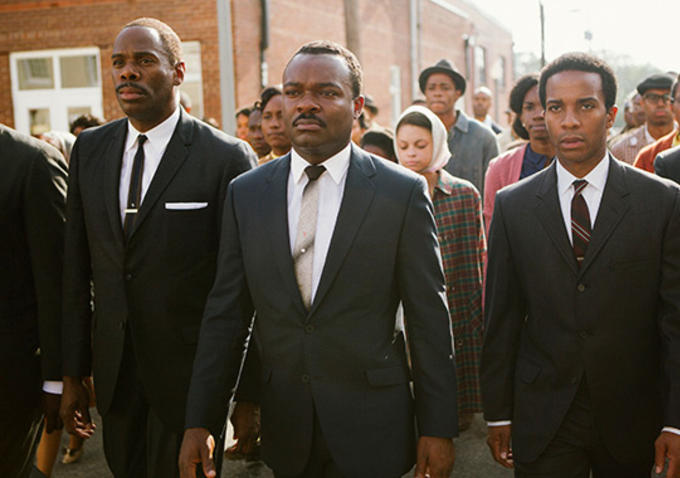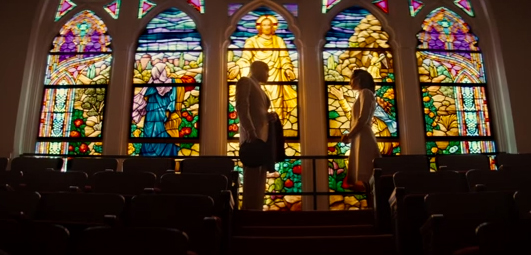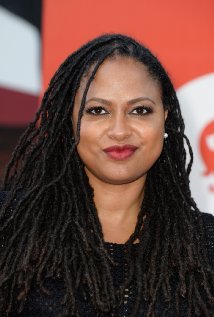Women's Pictures - Ava DuVernay's Selma
 Thursday, February 19, 2015 at 8:40AM
Thursday, February 19, 2015 at 8:40AM

Nothing about Ava DuVernay’s career up to 2014 suggested the epic sweep of Selma. I Will Follow and Middle of Nowhere are both quiet dramas, focusing on one central character and a handful of supporting players as they navigate a major, life-altering event. Race is the background against which these stories are set - coloring a heated music discussion, or shading the convict’s biased parole hearing - but racism isn’t explicitly addressed. This changes dramatically with Selma. In a year that has seen protests in Ferguson and serious discussions about diversity in the Academy, Selma has been called everything from controversial to current to incorrect. For its director, it’s proof that 6 years and 3 movies can rapidly mature a talent.
When telling the story of Martin Luther King’s 1965 protest march in Alabama, DuVernay focuses not on a man, but on a movement. She studies the Civil Rights movement as if it were a character, following not only Dr. King’s glossy speeches, but also the many behind-the-scenes maneuvering. King’s arguments with President Johnson, Johnson’s arguments with Governor Wallace, the student organizers’ arguments with King’s men, even quieter discussions between Coretta Scott King and Malcolm X expose the precarious balance between ideology and strategy that's needed to succeed. DuVernay manages to write her characters with humanity as well, populating the film with people, not symbols. Early on, Dr. King (dignified David Oyelowo) comments lightly that the reason he's in Selma is because he needs a bully to catch national sympathy, and the racist sheriff is that man. As men start dying, those words hang over King's head like a cross.
If I have one complaint with Selma, it’s that the violence is too beautiful. DuVernay deftly stages the action of hundreds of protestors for the camera, and re-teams with cinematographer Bradford Young. The result is similar to Raging Bull: every protest is shot differently, so that each violent outbreak feels fresh. If the night march feels familiar to 2014 audiences, if the first march feels claustrophobic, if the violence on the Edmund Pettus Bridge looks like a hallucinatory war film, that’s not unintentional. In Selma, Ava DuVernay has matched epic sweep with humanity and brutal vision. It’s a hell of an achievement for a third film.

This close to the Oscars ceremony, reviving the question of whether Selma was snubbed is pointless. But regardless of Sunday’s outcome, Ava DuVernay has joined a different illustrious company: unnominated female directors whose films were nominated for Best Picture. In an attempt to divine DuVernay’s future, I did some research, and discovered a pattern: Of these nine female directors, seven are still directing. Of those seven directors, four (including DuVernay) are now working in TV.
As anyone with a remote or a streaming subscription knows, we are currently in a second Golden Age of television. This is due in no small part to the diversity of creative talent. Every year, more shows are created by, directed by, and starring women, people of color, and the LGBTQ community. In this increasingly colorful TV landscape, Ava DuVernay will be a welcome addition when she launches her show on OWN. But at what cost to film?
 2014 has been widely criticized as the whitest, most male-dominated year of the Oscars in a long time. As much as I would like to blame our old scapegoat, the White Male Voter, this is also because of the homogeny of the films being offered to the Academy. When we can count the number of Oscar nominated female directors on one hand--likewise for directors of color--we should be shouting for more of these voices in film, instead of celebrating when the ones who’ve already proven themselves move to television (where they can get snubbed by the Emmys instead). I love Ava DuVernay’s work. I can’t wait to see what she creates with Oprah’s blessing. But surely I’m not alone when I say: Ava DuVernay, please come back to film soon.
2014 has been widely criticized as the whitest, most male-dominated year of the Oscars in a long time. As much as I would like to blame our old scapegoat, the White Male Voter, this is also because of the homogeny of the films being offered to the Academy. When we can count the number of Oscar nominated female directors on one hand--likewise for directors of color--we should be shouting for more of these voices in film, instead of celebrating when the ones who’ve already proven themselves move to television (where they can get snubbed by the Emmys instead). I love Ava DuVernay’s work. I can’t wait to see what she creates with Oprah’s blessing. But surely I’m not alone when I say: Ava DuVernay, please come back to film soon.

Thus concludes our first month of Women's Pictures. Next week will be a vote to choose our next female filmmakers. Who do you want us to cover? If you have suggestions for future Women’s Pictures directors, post them in the comments or find Anne Marie on Twitter!



Reader Comments (8)
I need to see all of her films. I know why Hollywood keeps the medium of film to itself (patriarchal white supremacy). Hence creating more inclusionary practices with theater and television. Because they are the "lesser" and less glamorous platforms for talent.
The Selma snubs are only going to help her next film, I think. ~*~Staying positive~*~
"As anyone with a remote or a streaming subscription knows, we are currently in a second Golden Age of television. This is due in no small part to the diversity of creative talent. Every year, more shows are created by, directed by, and starring women, people of color, and the LGBTQ community."
Which explains, in part, why most of the 12 or so people of color who are presenting at the Oscars (out of the 40) are largely drawn from TV.
For anyone (like me) who needs to catch up on her earlier work, Middle of Nowhere is the ITunes 99 cent rental this week.
Lovely writeup, Anne Marie. I'm still so sad Ava was snubbed. Especially over the likes of Bennett and Morten. Selma renewed my faith in the power of cinema to jolt, convince and affect the viewer.
And I'm sure that Oyelowo will follow her to OWN (as a guest star at least), though I doubt that it will derail his film career.
Selma was an astonishing and moving experience to watch. And I do want more of the same quality.
Women just want to work and be respected, I'm not so sure that DuVernay's decision to leave the film community (for the moment) is such a loss. Let's take a look at the context.
I will just speak for myself here, the exclusion of DuVernay from the list of best Directors really rankled because it was final straw in a bad year of blatant sexism.
There were negative remarks by Russell Crowe about actresses. Then Aaron Sorkin came out and said women's parts in films aren't as difficult as men's parts. Sony Emails informed us that actresses Jennifer Lawrence & Amy Adams were paid less than their male counterparts in American Hustle. Let's not forget the whole Bill Cosby scandal unraveling.
So at the end of the year, during awards season there have been several noteworthy omissions in films about women:
No screen adaptation nomination for Gillian Flynn for Gone Girl
No screen adaptation nomination for Nick Hornby for Wild (a film about a woman)
No best picture nomination for Gone Girl or Wild
No nomination for best actress for Belle and Beyond the Lights - female directed and pretty much ignored except for best song. Lot's of actresses did great work but it was considered a "weak year for actresses".
So given that atmosphere, why wouldn't any women prefer to leave ?
Why struggle with funding and male executive producers, and males who get paid more?
On TV we have, OITNB, The Good Wife, Game of Thrones, Nashville, Empire, etc...
Women just want a chance to work and be treated equally. There isn't perfect equality on TV but at least there are more opportunities.
Women make up 52% of the movie audience, and instead of grabbing the talent that made Selma, Belle, or Beyond The Lights, the film community is slightly insulted that Ava DuVernay said something.
They are insulted? The film community has ignored and insulted women all year long, and for years before this. Ava DuVernay should go to TV - put that talent into something great, and wait for the film community to come back to her. (if it ever does)
As for me I relish the abundance on TV, and will simply boycott films that don't include a good woman's part. (no comic book films for me). The Hollywood film community doesn't deserve the talent it throws away. I will get off my soapbox now.
Question for Anne Marie about this series -- is the focus of "Women's Pictures" on the content and aesthetics of the films made by women? Or is it more about the process of how these films got made and/or were received? Or just a kind of hey-let's-acknowledge-overlooked-women-directors and whatever is interesting about their films...or...?
I'm asking because you're looking for suggestions, but I'm not clear what the focus is beyond the gender of the director. (Sorry, I missed the original launch of this series, so I don't remember what you said at the time...)